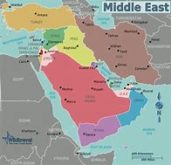Iranwire – Iranian President Ebrahim Raisi has endorsed increasing the number of surveillance cameras used to identify women who defy mandatory hijab rules, choosing not to wear the headscarf in public, the Islamic Republic’s police commander said on Thursday.
The move comes amid escalating pressure from the Islamic Republic to enforce mandatory hijab and to use artificial intelligence to identify women seen without headscarves.
Ahmadreza Radan, speaking on Thursday, June 15, in relation to the “detection of hijab through cameras,” said the police force had requested the government to enhance the “coverage level” of surveillance cameras.
He also announced that Raisi has expressed his agreement with the proposal, “raising hopes for the allocation of funds in the near future.”
According to Radan, the implementation of the project aims to maximize security on various fronts.
In its initial phase, the system will send reminder SMS notifications to individuals found to be violating hijab. Subsequently, follow-up SMS messages will be issued for “judicial and law enforcement” purposes.
Previously, Radan had issued a warning that the police force would use CCTV cameras and smart systems in cities across Iran to identify women not adhering to mandatory hijab.
Women who persistently appear without hijab would then be referred to the courts.
For more than 40 years, women in Iran have been subjected to discriminatory treatment regarding employment, education, clothing and inheritance, among other areas.
All women in public spaces in Iran must conceal their hair with a headscarf, or hijab, and wear loose fitting trousers under their coats.
In an act of defiance against the ideology and laws of the Islamic Republic, a growing number of women, including celebrities, have appeared in public without head coverings since nationwide protests began last year. Iranian authorities have unleashed a brutal crackdown on the anti-government demonstrations, which were sparked by the September death of 22-year-old Mahsa Amini in the custody of morality police. Amini had been arrested for allegedly wearing a hijab improperly.
Activists say more than 520 people have been killed and over 20,000 others have been detained in connection with the protests so far.
Following unlawful detentions and biased trials, the judiciary has handed down stiff sentences, including the death penalty, to protesters.
 Shabtabnews In this dark night, I have lost my way – Arise from a corner, oh you the star of guidance.
Shabtabnews In this dark night, I have lost my way – Arise from a corner, oh you the star of guidance.



